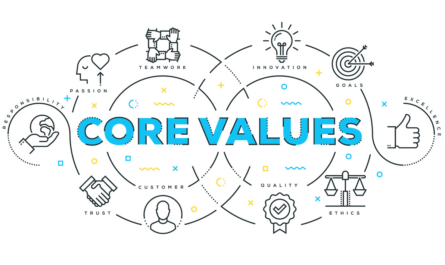Best practices to consider in successful vendor relationships.
Dr. Eric Roman, Partner, DEO
Vendors play an important role in operating a dental business, but failing to leverage these relationships effectively can lead to wasted resources and missed opportunities. In today’s technological age, it is crucial to do more with less, focusing on core business activities while relying on vendors to support operations. Here are 7 valuable insights and strategies for optimizing your vendor relationships.
Establish clear communication and alignment
Before engaging in discussions with vendors, it is essential to share your company’s vision, current status, and goals with them. By providing vendors with comprehensive information, you ensure they come prepared and ready to align their offerings with your needs. Be upfront about specific requirements, such as regular meetings with your team members. Additionally, evaluate vendor compatibility with your core values to ensure a good match.
Treat your vendors like valued employees, recognizing their importance and the potential value they bring to your business. This relationship should be nurtured and managed just like any other employee-employer dynamic, as it often involves significant financial investments.
Avoid constant negotiation
While negotiation is crucial for maintaining favorable vendor agreements, constantly engaging in it can be counterproductive. Negotiating takes time away from other essential tasks and can exhaust both parties. To overcome this challenge, set a schedule for vendor agreements, typically lasting one to two years. Plan in advance, and assign a team member to notify you when the renewal period approaches. Streamline the process by openly collecting bids from competitors and setting the standards that you will use to make informed decisions for the next contractual period.
Document expectations and responsibilities
To ensure a clear understanding between your business and vendors, establish written agreements detailing expectations and commitments. Store these documents securely, signed by both parties, so that each side understands their responsibilities. Having written agreements helps prevent misunderstandings and serves as a point of reference when issues arise. Moreover, it fosters accountability and allows for effective vendor management.
Delegate to the right people
Avoid centralizing vendor relationships solely around the CEO. Instead, designate knowledgeable team members to handle specific vendors, depending on their expertise and familiarity with the products or services provided. Delegating these responsibilities empowers team members and ensures better management and communication within vendor relationships. You will have someone within your team keeping track of the latest features offered by your vendors and making sure you are fully utilizing the services available to you.
Implement effective tracking and organization
Maintain a centralized system for tracking all vendor relationships. Consider assigning a responsible party to oversee vendor relationships holistically if you haven’t already delegated each vendor to a specific team member. Create a schedule that spaces out the renewal periods for similar vendors throughout the year. By distributing these tasks, you prevent overwhelming periods of vendor negotiations and ensure a more manageable workload.

Review and eliminate unused products or vendors
Periodically review your vendor relationships to identify products or services that are underutilized or no longer necessary. Encourage your team to evaluate the tools and resources provided and decide whether they genuinely benefit your operations. If certain items are not being used effectively, consider eliminating them or reallocating resources to maximize efficiency. Trust your team to make informed decisions while ensuring critical tools are being utilized effectively.
Maintain regular communication
Establish a regular meeting cadence with your vendors to foster ongoing communication and ensure alignment on commitments and expectations. These check-ins allow you to provide feedback on how well the vendor is meeting their commitments, while vendors can also offer insights and suggestions to enhance the value they provide. Regular communication builds trust, strengthens relationships, and promotes a mutually beneficial partnership.
By implementing strategies such as clear communication, streamlining negotiation processes, documenting expectations, delegating responsibilities, and maintaining regular communication, dental businesses can maximize the value derived from vendor relationships. Furthermore, regularly reviewing and eliminating unused products or vendors helps maintain a lean and efficient operation. By prioritizing and nurturing these partnerships, dental businesses can achieve better outcomes and focus on their core competencies.






